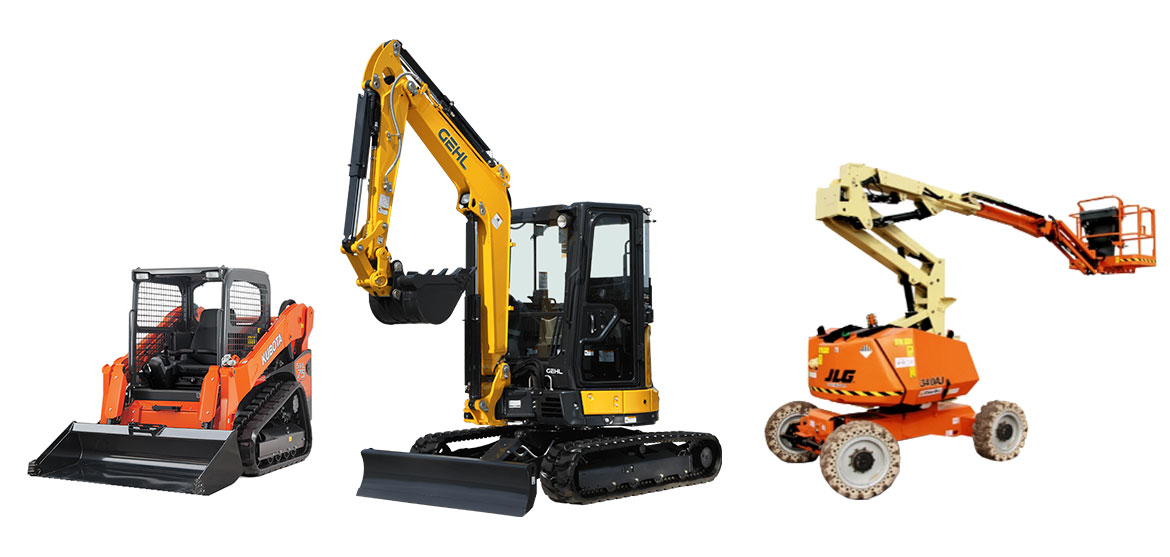Equipment Rental Company: Your Source for All Kinds Of Machinery
Equipment Rental Company: Your Source for All Kinds Of Machinery
Blog Article
Optimize Your Budget by Understanding the Costs Connected With Construction Equipment Services
Recognizing the full scope of prices associated with building and construction devices leasings is crucial for maximizing your spending plan. While the preliminary rental fee might seem uncomplicated, many added expenditures-- such as transport, gas additional charges, and maintenance-- can rapidly build up, influencing your financial planning. Additionally, recognizing numerous fees and the complexities of rental agreements can assist avoid unexpected monetary worries. What approaches can be employed to efficiently manage these expenses and make sure an extra effective rental experience?
Review of Rental Expenses
When taking into consideration construction equipment rentals, recognizing the linked costs is critical for effective budgeting and project planning. Rental costs can vary dramatically based on a number of elements, consisting of equipment type, period of rental, and place. The first rental fee typically mirrors the tools's market demand and its associated operational capabilities, affecting the overall expenditure.
In enhancement to the base rental price, secondary costs may develop, such as transportation fees, fuel surcharges, and upkeep charges. It is important to represent these additional costs to properly evaluate the complete price of renting out equipment. The rental duration can impact rates; longer rentals may certify for discounted rates, while temporary leasings could sustain greater daily costs.

Breakdown of Rental Prices
An extensive understanding of rental rates is necessary for professionals and job managers aiming to enhance their budgets. Rental prices for building devices typically include a number of parts, including base prices, time-based costs, and usage fees.
Base prices are the core fees related to the service of the equipment, often figured out by the kind and dimension of the equipment. These prices can vary considerably, influenced by factors such as equipment demand, accessibility, and local market patterns. Time-based fees, which might be daily, weekly, or monthly, serve to suit various project timelines and rental periods.
Furthermore, rental rates might include usage charges, which are applicable when equipment is used beyond a defined threshold, guaranteeing that the rental company can account for wear and tear. Seasonal need variations can likewise affect rental rates, with peak building seasons commonly regulating greater prices.
In addition, understanding the rental firm's plans pertaining to maintenance and insurance coverage can give more insight into the general price structure. By assessing these parts, specialists can make enlightened choices, making sure the option of rental tools straightens with both job needs and spending plan restrictions.
Extra Costs to Take Into Consideration
Recognizing the intricacies of added fees is critical for professionals to manage their total service costs successfully. Past the typical rental prices, numerous extra costs can considerably affect the overall cost of equipment service. These charges typically include delivery and pick-up costs, which can differ based upon range and logistics entailed in moving the devices to and from the job site.
In addition, some rental companies might impose fuel surcharges if the tools is returned with less fuel than when leased. It is also important to know possible cleansing fees, specifically for customized devices that requires thorough maintenance after usage.

Extensively assessing the rental arrangement and clearing up these added costs in advance can assist service providers prevent unforeseen prices and make sure that spending plans remain undamaged throughout the job lifecycle.
Repair And Maintenance Expenditures
Routine maintenance and repair costs are commonly ignored aspects that can considerably affect the general price of building and construction devices rentals. When renting visit homepage equipment, it is crucial to think about not just the rental charges yet likewise the potential prices connected with keeping the equipment in optimal operating problem.
Several rental business consist of standard upkeep as component of the rental arrangement; nonetheless, extra unanticipated breakdowns or substantial repair services can cause additional costs. It's important to review the rental contract carefully to understand what maintenance solutions are covered and what responsibilities fall on the occupant.
Furthermore, tools that is not well-maintained can cause ineffectiveness on duty website, potentially increasing and creating delays task prices. To reduce these dangers, it is suggested to carry out regular evaluations and keep open communication with the rental copyright pertaining to any kind of concerns that arise during usage.
Insurance Policy and Obligation Prices
Insurance policy and obligation expenses are important parts that can dramatically affect the general expenditure of construction devices rentals (scissor lift rental). These costs guarantee that both the rental firm and the client are secured from potential monetary losses emerging from accidents, damage, or theft during the rental duration

Additionally, clients ought to understand any kind of deductibles or exemptions in the insurance coverage policy, as these can continue reading this affect possible out-of-pocket expenses. Understanding the conditions of any insurance protection is essential to avoid unforeseen prices. Inevitably, best site budgeting for insurance and responsibility expenses can aid guarantee a smoother rental experience and shield against economic threats connected with construction projects.
Final Thought
In final thought, a thorough understanding of the expenses connected with building equipment rentals is vital for efficient spending plan monitoring. Eventually, informed decision-making concerning devices leasings adds to the overall success of construction endeavors.
Rental expenses can differ significantly based on several elements, consisting of equipment type, period of leasing, and area (dozer rental). The rental period can influence prices; longer rentals might qualify for reduced rates, while short-term services might sustain greater everyday costs
By conducting complete research study and engaging with respectable rental companies, specialists can properly navigate the intricacies of rental prices, eventually optimizing their economic resources.
Past the conventional rental prices, numerous additional costs can considerably affect the total expense of tools rental. Rental firms typically offer responsibility insurance coverage that covers injuries to 3rd events or damages to residential property, while tools damages insurance coverage can cover the cost of repairs or replacement if the rented equipment is damaged.
Report this page